History of Programme
Philosophy and Objectives of the Department
The Department of Mechanical Engineering was one of the foundation departments of the Faculty in 2019. The undergraduate programme is designed to produce graduates that can be more readily absorbed into the various areas of the rapidly developing field of Mechanical Engineering. Students are exposed to both basic and applied courses as well as laboratory and industrial training to enable them satisfy the manpower needs of the public and industrial sectors of the Nigerian economy. Our graduates are expected to be able to design and supervise Engineering projects and constructions, develop new products and techniques as well as maintain Engineering Units. Our programme also offers sufficient depth to enable the promising graduates to undertake postgraduate work in Mechanical Engineering or related disciplines in Science Engineering.
The programme is organized such that two years of basic training in Mechanical Engineering Science is followed by more detailed professional training in the field of Mechanical Engineering lasting for two years. In the final year, students are given the options to specialise in any of the following areas:
- Design and Production Engineering
- Thermo-Fluids and Energy
- Mechatronics Engineering
- Advanced Materials Engineering
Undergraduate program is offered to prepare students not only for today, but also for tomorrow’s opportunities.
In line with the mission and vision of the University, the general goal of the department is to produce educated men and women equipped to use their abilities productively and wisely. The curriculum of our program is a route to intellectual maturity and means to the development of ideas, insights, values and competence which form permanent personal capacity for thought and action. The department provides the opportunity and conducive atmosphere for students to construct their own education and to acquire the means of making self-education the rewarding enterprise of a lifetime, enabling them to become effective agents of social change. Given this opportunity at the university, each student should develop at an appropriate level:
- Skills of inquiry, abstract and logical thinking, and critical analysis
- Competence in scientific writing and reporting
- The ability to understand and apply scientific and technological knowledge to national development.
- An awareness of system of values as bases for fulfilling the responsibilities of citizenship in democratic society.
- Develop the spirit of entrepreneurship in students so as to make them not job seekers but job creators on graduation from the university.
Vision and Mission of the Department of Mechanical Engineering
Vision of the Department
The Department aspires to be recognized globally for outstanding engineering education and innovative research, leading to well-qualified professionals, entrepreneurs, researchers and leaders with enduring character as change agents in the society.
Mission of the Department
The mission of the Department is to provide world-class quality education that will instill the professional, technical, entrepreneurial, ability to conduct innovative research, communication and leadership skills, and enduring character that will help students make impactful contributions towards the sustainable development of the global society.
Programme Educational Objectives
Graduates are expected to achieve the goals outlined in the program educational objectives within three to five years of graduation using the knowledge they have acquired from their academic program. The following are the program educational objectives (PEOs) for the Department of Mechanical Engineering at Redeemer’s University, Ede, Osun State, Nigeria:
PEO1: Apply their engineering knowledge, critical thinking, creativity, and problem-solving skills with integrity and passion in professional engineering practice or in non-engineering fields or business.
PEO2: Be influential members of multidisciplinary teams, creatively and effectively
contributing to the design, development, and objective evaluation of engineering components, systems, and products which will help in proffering solution to local and international engineering problems.
PEO3: Demonstrate a spirit of lifelong learning by acquiring sufficient skills to utilize modern engineering tools, complete a graduate degree, identify opportunities for innovation to enter into self-employment and employment as professional engineers, and pursue professional licensure to become a registered Engineer or equivalent status in other professional careers.
PEO4: Personally assume and actively encourage others to uphold the professional, ethical, social and environmental responsibilities as well as the safety practices of their profession.
PEO5: Imbibe enduring character, knowledge and integrity needed to inspire and lead others to engage in the transformational change and development of the society.
Programmes Outcomes (POs) for the Mechanical Programme
| PO | Description |
|---|---|
| PO1 | Engineering knowledge: Apply knowledge of mathematics, science and engineering fundamentals and an engineering specialization to the solution of developmental and complex engineering problems. |
| PO2 | Problem Analysis- Identify, formulate, research literature and analyze developmental and complex engineering problems reaching substantiated conclusions using principles of mathematics, natural sciences and engineering sciences. |
| PO3 | Design/Development solution: Proffer solutions for developmental or complex engineering problems and design systems, components or processes that meet specified needs with appropriate considerations for public health and safety, society and environmental considerations. |
| PO4 | Investigation: Conduct Investigation into developmental or complex problems using research-based knowledge and research methods including design of experiments, analysis and interpretation of data, and synthesis of information to provide valid conclusions. |
| PO5 | Modern tool usage: Create, select and apply appropriate techniques, resources, and modern engineering and ICT tools including prediction, modelling, and optimization to developmental and complex engineering activities with an understanding of the limitations. |
| PO6 | The Engineer and society: Apply reasoning informed by contextual knowledge including Humanities and Social Sciences to access societal, health, safety and legal and cultural issues and the consequent responsibilities relevant to professional engineering practice. |
| PO7 | Environment and sustainability: Understand the impact of professional engineering solutions in societal and environmental contexts and demonstrate knowledge of and need for sustainable development. |
| PO8 | Ethics: Apply ethical principles and commit to professional ethics and responsibilities and norms of engineering practice including adherence to the COREN Engineers’ Codes of Conduct. |
| PO9 | Individual and collaborative team work: Function effectively as an individual, and as a member or leader in diverse teams and in multi-disciplinary settings. |
| PO10 | Communication: Communicate effectively on developmental or complex engineering activities with the engineering community and with society at large, such as being able to comprehend and write effective reports and design documentation, make effective presentations, and give and receive clear instructions. |
| PO11 | Project management and finance: demonstrate knowledge and understanding of engineering management and financial principles and apply these to one’s own work, as a member and leader in a team, to manage projects, and in multidisciplinary environments. |
| PO12 | Lifelong learning: recognize the need for and have the preparations and ability to engage in independent and life-long learning, adaptability to new and emerging technologies and critical thinking in the broadest context of technological and societal changes. |
| PO13 | Enduring Character: Imbibe enduring character, knowledge and integrity needed to inspire and lead others to engage in the transformational change and development of the society. |
Staff Directory
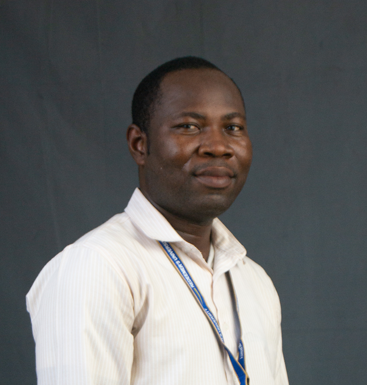
Lecturer I
Dr Olufemi Sanyaolu
Research Area
Design, Ergonomics, Materials and Manufacturing
Contact Information
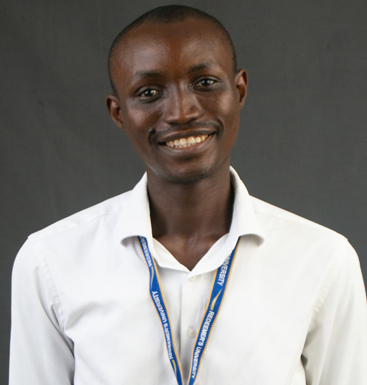
Lecturer II
Mr Adedotun Michael Adedoja
Research Area
Thermofluid and Energy
Contact Information
- adedojaa@run.edu.ng
- 08039293274
- Research Gate
- Google Scholar
Interest
Developing sustainable clean fuels and energy systems to reduce the global carbon footprint and global warming effects. To Impact many lives as agents of transformation for global development.
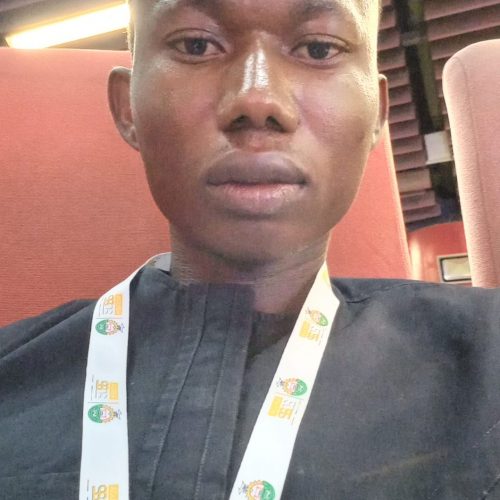
Lecturer II
Engr. Ogundipe Olorunshogo Benjamin
Research Area
Engineering Design and Production
Contact Information
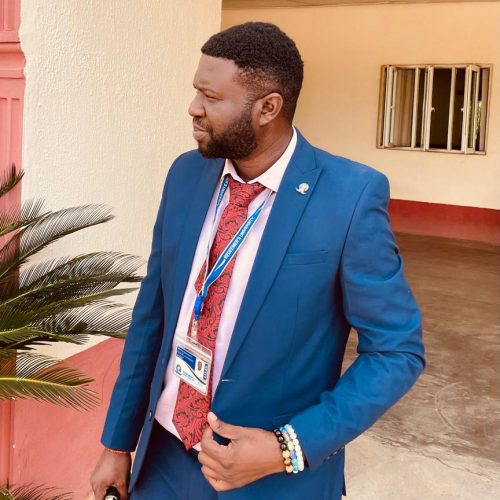
Associate Professor
O.S.A Adesina
Research Area
Spark plasma sintering, Laser-surface engineering, and Materials characterization
Contact Information
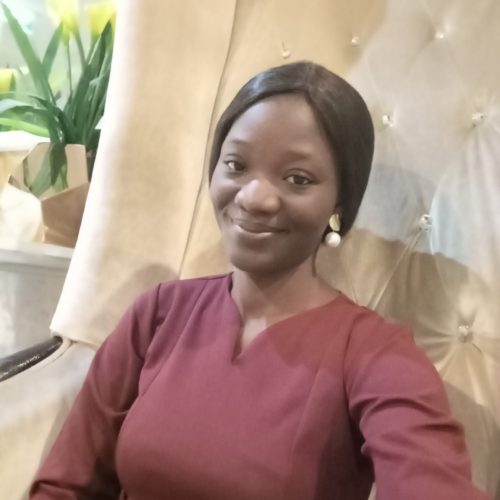
Technology Instructor
Ogunleye Janet
Research Area
Technology Instructor
Contact Information
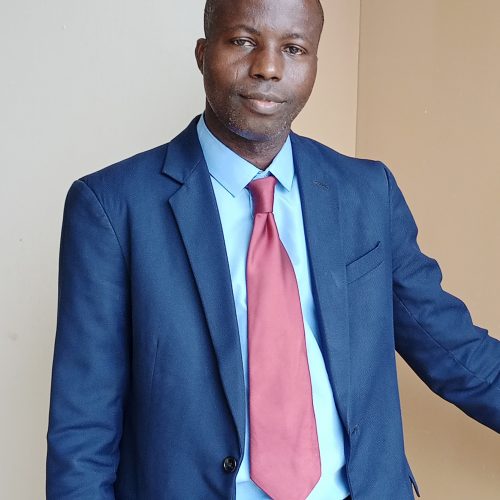
Technologist
Engr. P. Abioye
Research Area
Solid mechanics and Thermofluid laboratory analysis
